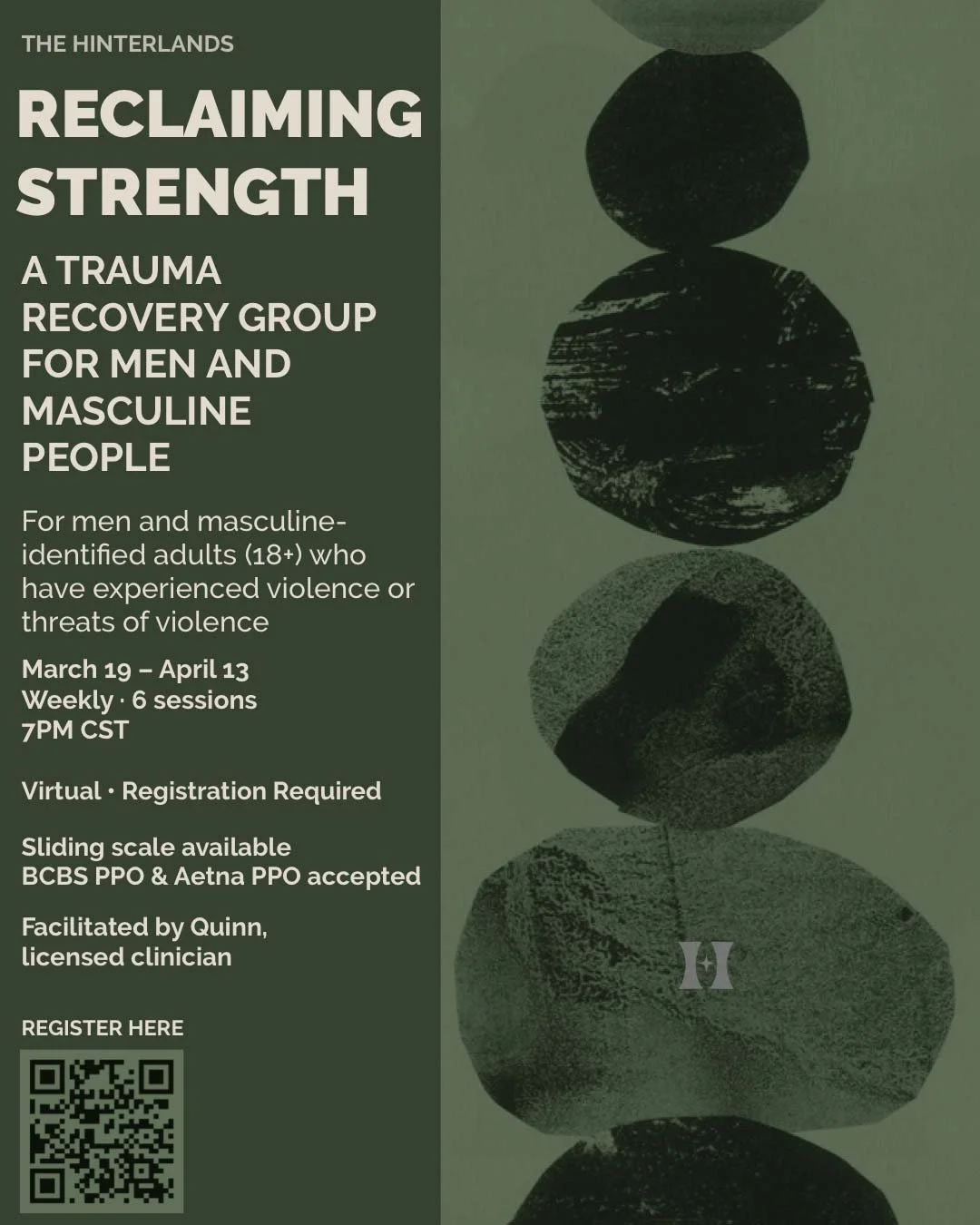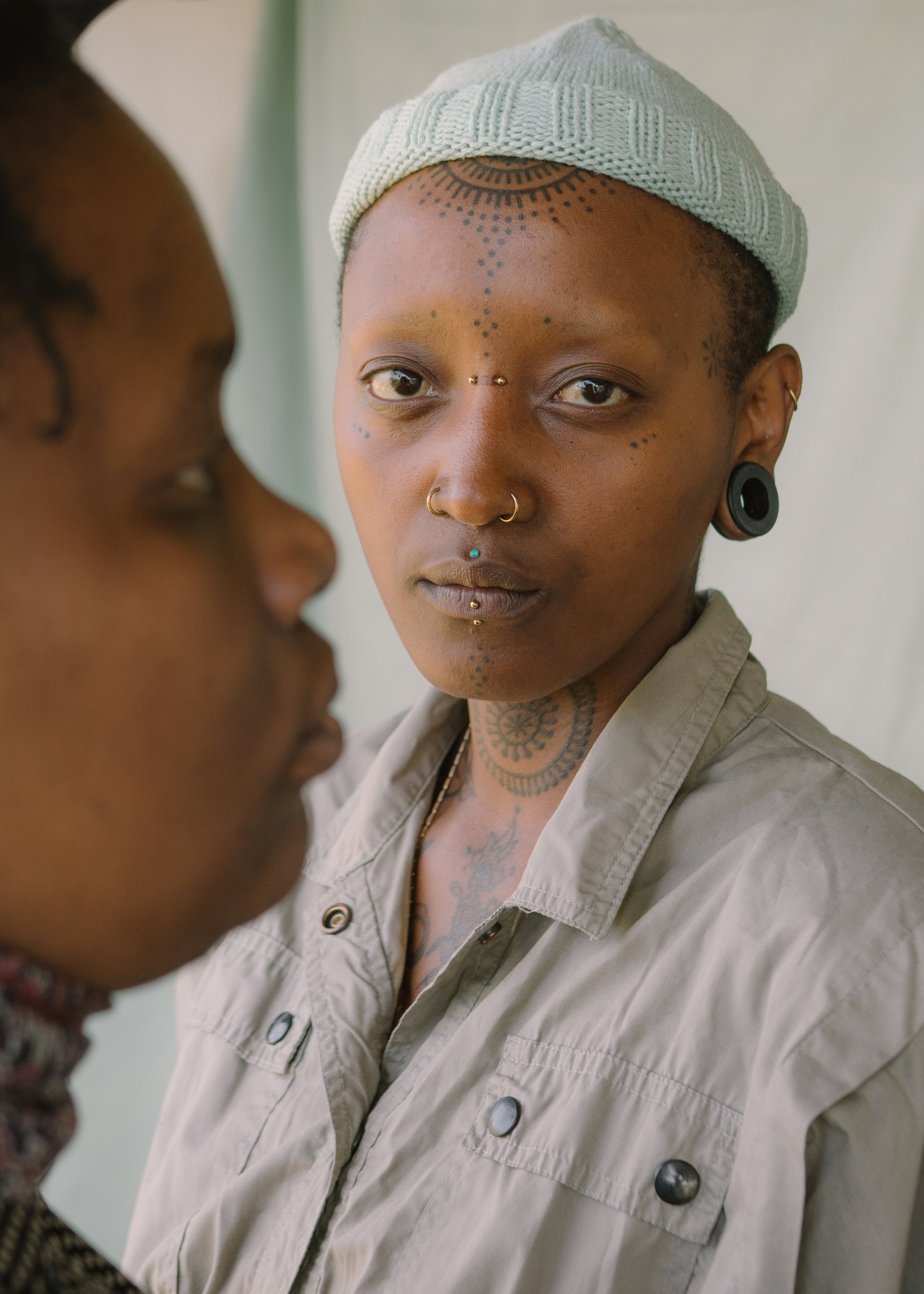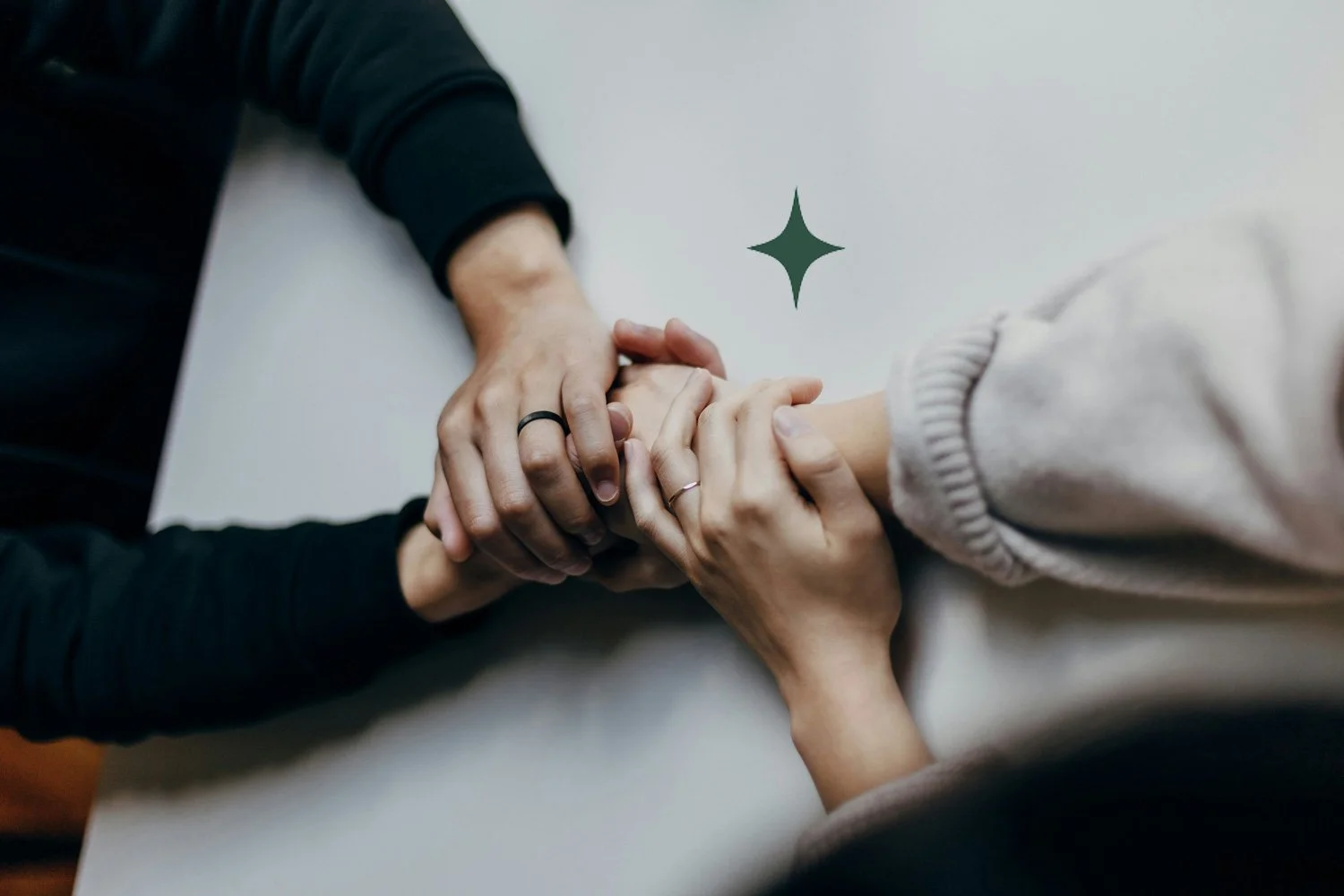
Group Work
Group therapy provides a unique space for individuals to come together to share experiences, build connections, and support one another’s healing journeys. Whether centered around a shared identity, common life experiences, or specific goals, group therapy fosters belonging and collective growth that can be deeply validating and transformative. Within this supportive space, group members witness each other’s stories, practice new ways of relating, and cultivate resilience through mutual encouragement and empathy.
At The Hinterlands, we believe community is a vital part of healing. Our therapy groups are thoughtfully facilitated to create safe, inclusive environments where every voice is honored and confidentiality is respected.
We offer online group therapy sessions for clients in Illinois and Connecticut, in-person group therapy in Irving Park, Chicago, and flexible hybrid options to accommodate diverse schedules and accessibility needs.
Upcoming Groups
Areas of Clinical Specialty
LGBTQIA+: Our LGBTQIA+ group therapy sessions provide a supportive space for queer and trans folks to explore identity, build community, and navigate challenges such as discrimination, dysphoria, coming out, and creating chosen family. Facilitated by queer therapists, these groups foster connection and resilience through shared experience.
ENM/Poly Folks: Our therapy groups for ethically non-monogamous and polyamorous individuals focus on relational dynamics, communication skills, and navigating stigma. These spaces offer support grounded in consent, autonomy, and nonjudgmental dialogue.
BDSM/Kink Community: We offer kink-aware group therapy spaces where members of BDSM and fetish communities can explore identity, intimacy, and connection without judgment or pathologization. These groups provide peer understanding and validation.
Immigrants/Refugees: We offer culturally responsive therapy groups that support immigrants, refugees, and first-generation participants coping with displacement, intergenerational trauma, and diaspora experiences. These shared spaces prioritize dignity, deep listening, and mutual support.
Substance Use: Our harm-reduction oriented groups provide compassionate support for individuals working with substance use challenges—whether seeking sobriety, moderation, or insight—within a stigma-free environment.
Chronic Illness/HIV: Group therapy for people living with chronic illness or HIV addresses the emotional, social, and systemic impacts of health conditions, centering body sovereignty, autonomy, and shared care.
Autism/ADHD/Neuroqueer: Neurodivergent participants can find connection in groups that honor sensory needs, diverse communication styles, and the pursuit of authenticity in a safe, affirming environment.
Multi-Cultural/Mixed-Race: We offer BIPOC group therapy to explore the complexities of navigating multiple cultural identities and fostering belonging, cultural pride, and understanding across diverse experiences.
Artists/Performers/Craftsfolk: Therapy groups designed for creatives provide support around burnout, impostor syndrome, performance stress, and creative blocks, emphasizing shared challenges and inspiration.
Religious/Spiritual Trauma: In these therapy groups, members process religious and spiritual trauma together, exploring grief, reclamation, and spiritual redefinition in a supportive, nonjudgmental space.
Parenting: Caregivers connect in groups that address the emotional and relational challenges of parenting, including identity shifts, co-parenting, neurodivergence, and intergenerational trauma.
Educators: Therapy groups for educators provide support to address burnout, systemic barriers, and the emotional labor of teaching, creating space to nurture well-being and leadership.
Activists: Group therapy sessions for activists focus on healing from burnout, moral injury, and grief, while fostering accountability, restoration, and resilience within social justice work.
Mad/Crip Folks: Disability-affirming groups provide a space for Mad/Crip participants to seek support without psychiatric coercion. These groups emphasize autonomy, respect, and resistance to medical pathologization, fostering community and empowerment.
What to Expect
No two group therapy experiences look the same. Each group begins by acknowledging the unique backgrounds, cultures, neurotypes, and temperaments of its members. Together, participants and facilitators identify shared goals, explore potential challenges, and create a supportive environment that aligns with the group’s purpose and needs. Group therapy is one part of a larger journey toward wellness, shaped by environment, identity, systems, and culture. Exploring these elements alongside peers can be healing, meaningful, and even joyful.
Your first group session is a space for mutual discovery—not only meeting your group members and therapist(s), but exploring whether the group feels like a good fit for you. We’ll discuss group guidelines and confidentiality policies to help everyone feel safe and supported. Our goal is to help you build connections, gain insight, and foster a deeper sense of community.
Group Therapy FAQs
-
Group therapy can be a powerful option if you’re seeking connection, support, and growth alongside others who share similar experiences or goals. It offers a unique space to witness and be witnessed, practice interpersonal skills, and gain diverse perspectives. If you’re comfortable sharing in a supportive group setting and open to learning through interaction, group therapy could be a great fit. That said, it’s not for everyone. Some people may prefer the privacy of individual therapy or need a combination of both. We’re happy to help you explore what feels best for you.
-
Confidentiality is a cornerstone of group therapy, and every member agrees to keep what’s shared within the group private. Our therapists set clear guidelines about respecting privacy and maintaining trust. However, because group therapy involves multiple people, absolute confidentiality cannot be guaranteed in the same way as individual therapy. We emphasize the importance of respect, safety, and discretion among all group members to create a secure space for sharing.
-
The psychotherapists at The Hinterlands are in-network with Blue Cross Blue Shield PPO and Aetna. We are out-of-network with all other insurance providers, including Medicaid and Medicare. Payment is due at the time of service.
If you're using out-of-network benefits, we’re happy to provide monthly superbills and statements to support your reimbursement process. We accept HSA cards, Zelle, and all major credit cards for payment.
-
We are committed to providing affordable group therapy for our community. We offer a range of cash-pay options, including sliding scale therapy sessions. These rates are based on therapist availability and the type of treatment, and typically range from $25 to the full session fee.
Sliding scale slots are limited and tend to fill quickly. During your intake call, you can ask your therapist whether they currently have sliding scale availability.







